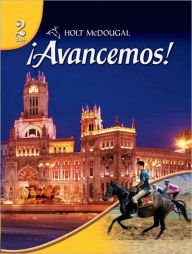
All Solutions
Page 231: Para y piensa
**English:**
**1**. I (to search) the excavation.
**2**. I (to pay) too much.
**3**. Sandra not (to have lunch).
**4**. We (to arrive) late.
**Español:**
**1**. *Yo (buscar) la excavación.*
**2**. *Yo (pagar) demasiado.*
**3**. *Sandra no (almorzar).*
**4**. *Nosotros (llegar) tarde.*
* Let’s review the information in ***”Preterite of -car, -gar, and -zar Verbs”*** on page **227**.
* Remember, we must use the *pretérito*. This tense is used to refer to actions from the past that have already finished and have no relation to the present or to the moment in which they are being talked about.
* In this case, we must use the preterite indicative of the verb **”Buscar”**, conjugated in the first person singular, (**Yo**) **”Busqué”**.
**Answer:**
**Español:** Yo busqué la excavación.
**English:** I searched for the excavation.
**English**:
**1**. I (to search) the excavation.
**2**. I (to pay) too much.
**3**. Sandra not (to have lunch).
**4**. We (to arrive) late.
**Español**:
**1**. Yo (buscar) la excavación.
**2**. Yo (pagar) demasiado.
**3**. Sandra no (almorzar).
**4**. Nosotros (llegar) tarde.
* Let’s review the information in ***”Preterite of -car, -gar, and -zar Verbs”*** on page **227**.
* Remember, we must use the *pretérito*. This tense is used to refer to actions from the past that have already finished and have no relation to the present or to the moment in which they are being talked about.
* In this case, we must use the past indicative of the verb **”Pagar”**, conjugated in the first person singular, (**Yo**) **”Pagué”**.
**Answer:**
**Español**: Yo pagué demasiado.
**English**: I paid too much.
**English:**
**1**. I (to search) the excavation.
**2**. I (to pay) too much.
**3**. Sandra not (to have lunch).
**4**. We (to arrive) late.
**Español:**
**1**. *Yo (buscar) la excavación.*
**2**. *Yo (pagar) demasiado.*
**3**. *Sandra no (almorzar).*
**4**. *Nosotros (llegar) tarde.*
* Let’s review the information in ***”Preterite of -car, -gar, and -zar Verbs”*** on page **227**.
* Remember, we must use the *pretérito*. This tense is used to refer to actions from the past that have already finished and have no relation to the present or to the moment in which they are being talked about.
* In this case, we must use the past indicative of the verb **”Almolzar”**, conjugated in the third person singular, (**Ella**) **”Amorzó”**.
**Answer**:
**Español**: Sandrá no almorzó.
**English**: Sandrá did not have lunch.
**English:**
**1**. I (to search) the excavation.
**2**. I (to pay) too much.
**3**. Sandra not (to have lunch).
**4**. We (to arrive) late.
**Español:**
**1**. *Yo (buscar) la excavación.*
**2**. *Yo (pagar) demasiado.*
**3**. *Sandra no (almorzar).*
**4**. *Nosotros (llegar) tarde.*
* Let’s review the information in ***”Preterite of -car, -gar, and -zar Verbs”** on page **227***.
* Remember, we must use the *pretérito*. This tense is used to refer to actions from the past that have already finished and have no relation to the present or to the moment in which they are being talked about.
* In this case, we must use the preterite indicative of the verb **”Llegar”**, conjugated in the first person plural, (**Nosotros**) **”Llegamos”**.
**Answer**:
**Español**: Nosotros llegamos tarde.
**English**: We were late.
Haven't found what you were looking for?
Search for samples, answers to your questions and flashcards

